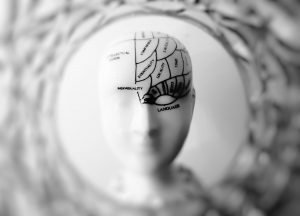
(Pexels – SHVETS production)
When it comes to learning in school, memorisation is a vital skill that we use to store and retain information when needed in tests and examinations.
It can be used in many instances such as memorising a Math formula and applying it to solve a problem.
However, the information stored is only temporary since we only memorised it and not understood it, since human memory is quite fragile after all.
Let’s take a look at each of them and their differences to further aid our learning!
What is Memorising?

(Pexels – Andrea Piacquadio)
When we memorise something, we process it in our brains and store it for later use. It is quite a quick process, which is why we can still pass tests and exams if we try to cram a lot of information the night before.
As the information gets stored in our brains, it goes through a process known as repetition.
We will keep reviewing and repeating the information in our heads, so it will stay there longer and improve our memory recall abilities.
Although it is a fast process, it can get hard to memorise many things at once. Here are a few methods that can help us get all the information we need in our heads and store it there.
Association

(Pexels – Karolina Grabowska)
Linking random and unrelated items to the information can actually create good connections, which helps us recall them better.
For example, I used to link certain Math formulas to everyday objects like a ruler and a spoon.
Not only does it make it more fun to memorise, but I really did manage to recall all of the formulas tested in the preliminary examinations at that time!
Visualisation
Similarly to association, we could create mental or physical images to link the information.
It could be simple things, such as basic colours, or more complex ones, like drawings or scenarios.
Not only can it help us recall the information better, but it also improves our creativity and imagination, channelling the inner child all of us have.
Active Repetition

(Pexels – Aleksandar Pasaric)
Another method is to constantly rehearse the information physically, not just in our minds.
This could be done through actions such as summarising and writing them down, having discussions with others, or teaching them about the information.
The act of verbalising and applying the knowledge will help to not just improve your memory storage but also form some understanding.
What is Understanding?

(Pexels – Yan Krukau)
Understanding something is more than just cramming information and memorising it.
We actually have to dive deep into the concept to know what it is about. It is not a quick process like memorising, but a deep and thorough comprehension of the information and how it works.
When we understand something and get asked about it, we won’t need to try and recall the answer, as the information is already internalised in our minds.
With that being said, it can definitely be tough trying to understand many topics at once. Here are some methods that have been proven to be useful multiple times!
Connection
It is easier to understand something when we connect it to a situation or thing that we know about.
For example, when I first learned about global warming and climate change, I was just touching on the subject.
But because I see the consequences of it in my daily life such as rising in temperatures, I connect them together and am able to fully grasp what the subject is about.
Critical Thinking

(Pexels – Christina Morillo)
We can better understand a particular concept by analysing the information critically, dissecting it into smaller parts, and questioning it.
By thinking outside the box and challenging it, we form our own perspectives and opinions about the topic, which helps us understand it better.
Interaction
When we discuss the information with others, we gain new insights and knowledge about it.
It also makes the process less boring and frustrating since we experience the same thing with others, and we can also consult them when needed. All of these will not be possible when we do it ourselves!
Key Differences

(Pexels – Markus Spiske)
Ultimately, it is quite easy to pinpoint the main differences between understanding and memorising. For effective and long-term learning, understanding is way better than simply memorising.
However, there are instances where memorising is better as well. Let’s take a look at when we should use either of them effectively.
When Understanding Is Better

(Pexels – meo)
When we memorise information, we have only learned it at a minimal surface level.
On the other hand, understanding it forces our brains to internalise the information, and we will know when to apply it. Understanding also definitely stores the information for a longer period of time as compared to memorising.
Additionally, we are only able to recall limited words and phrases when memorising, but we are able to recall other concepts and processes that the information can be applied to when we understand it thoroughly.
When Memorising Is Better
However, memorisation also has its times when it’s better than understanding.
When it comes to certain subjects such as History and Biology, it can be extremely difficult to study and understand every concept and terminology taught to us.
Thus, it will be easier and less time-consuming for us to just understand a portion of them and memorise the rest to the best of our abilities.
It is also a better method when we really can’t understand the information no matter what, although the information stored will be short-term. Last but not least, constant memorisation can also lead to conceptual understanding with enough time and analysis!
Conclusion

(Pexels – Lum3n)
In this article, we have gone through a deep analysis of both of them and have gained some helpful methods to better incorporate them into learning.
Although memorisation has its benefits, understanding is the actual learning and storing of information in our brains.
However, no matter which method is better, we hope this can help you effectively use both of them and thrive in the learning world!
